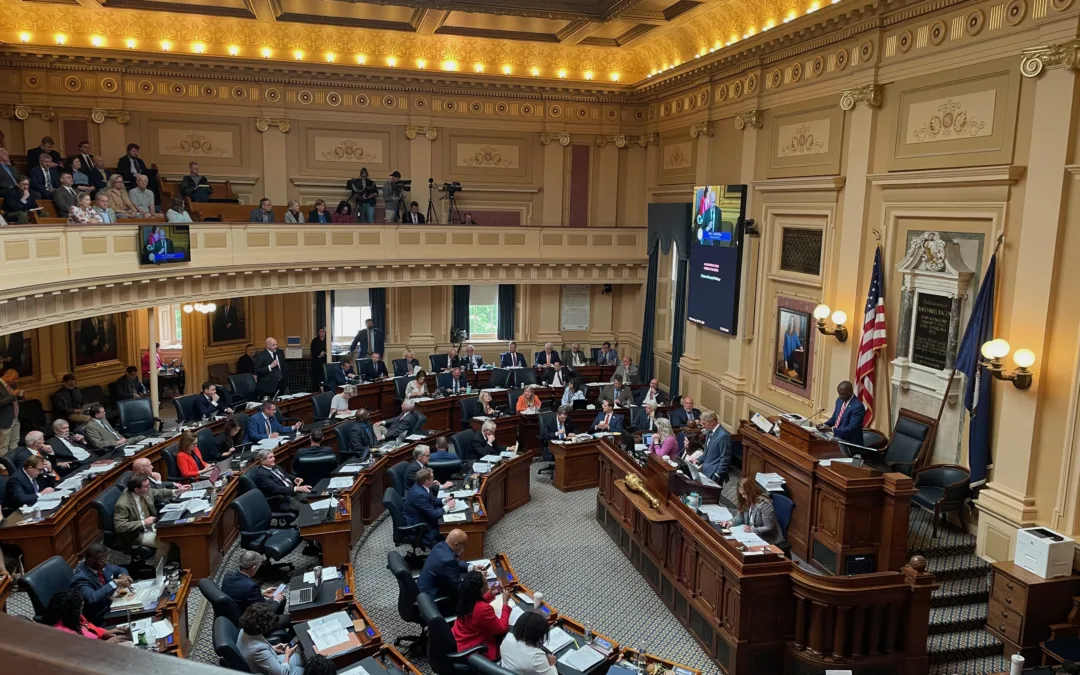Advocates say bringing parole back to the state could solve problems with overcrowding and lack of funding for health care.
Criminal justice reform was a talking point for Democrats on the campaign trail this year, with candidates promising to make it a priority if elected. Now that the party is about to be in power, advocates for reform are cautiously optimistic.
“This marks a big change,” Margaret Breslau, co-founder of the Virginia Prison Justice Network and chair of the Coalition for Justice, said in an interview. “Almost all the bills that have come out on parole and sentencing reform, which are the two big issues, have been introduced by Democrats.”
Virginia incarcerates significantly more people than the national average, imprisoning 779 per 100,000 residents versus the national average of 698, according to the Prison Policy Initiative. And the rate of people getting imprisoned in Virginia has more than doubled since 1978. The system disproportionately affects the African American community, which has incarceration rates five times higher than those of the white population.
Breslau said in previous General Assembly sessions, the “Courts of Justice” committees in the House and Senate are where criminal justice legislation died under Republican majority. But Democrats are taking over in January, and they have already taken steps that signal a serious reform effort is underway.
On Tuesday, House Speaker-designee Eileen Filler-Corn nominated Del. Charniele Herring, who has a long record of advocating for prison reform, as the new chair of the Courts of Justice in the House. And Del. Joseph Lindsey (D-90th) has already pre-filed three criminal justice reform bills for the 2020 session: two that would expunge the records of specific convictions, and one designed to improve the state’s parole system.
There are a number of issues facing state prisons the new Democratic majority could address, including health care, funding, solitary confinement, incarceration rates, and parole. But of those issues, parole is the lynchpin that could alleviate pressure everywhere else.
That’s because Virginia abolished parole on all new convictions in 1994, requiring felony inmates to serve at least 85% of their sentence before they’re eligible to be released. As a result, the state’s prisons are overcrowded and lack the resources to adequately care for their population. Newly-convicted inmates sometimes spend several years in local jails waiting for open space at the state prisons.
Virginia’s prison system has also come under increased scrutiny recently for a number of prisoner deaths, leading to lawsuits and calls from advocates for better health care in the prison system. Advocates say these health care problems are tied to the lack of parole, which has led to an older inmate population who need more health care services. The percentage of inmates over the age of 55 has more than doubled in the past ten years.
Breslau warns that while Democrats taking the majority is promising, it’s important to remember that criminal justice reform still isn’t guaranteed.
“It’s a long arduous process, and bills can be killed, or changed, or just left to sit until the next General Assembly,” Breslau said.
Politics

Youngkin, Democrats to start over on budget talks
The Republican governor stood with Democratic leaders in the General Assembly on Wednesday in a bid to ease tensions over their budget debate....

VIDEO: Domestic abuse victims speak out against the gun law bills Gov. Glenn Youngkin vetoed
Senate Bill 47 and House Bill 46 aim to close the loophole that allows offenders to transfer their firearms to someone else instead of relinquishing...
Local News

Virginia verses: Celebrating 5 poetic icons for National Poetry Month
There’s no shortage of great writers when it comes to our commonwealth. From the haunting verses of Edgar Allan Poe, who found solace in Richmond's...

Join the fun: Recapping Family Literacy Night’s storybook adventures
When’s the last time you read a book aloud with a loved one? If it’s difficult to answer that question, then maybe it’s time to dust off that TBR...




